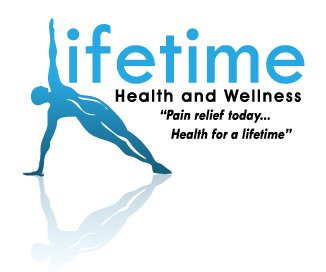There is a hormone-related condition that can cause uncomfortable symptoms in women, one that often goes unmentioned: low testosterone.
Low testosterone, or low T for short, is a common problem among men, particularly as they age. But it is also a condition that affects many women—and not only in midlife. Women may experience low T at any point during their lifetime.
Taking a closer look at the top signs of low testosterone in women can help you consider whether low T lies behind your symptoms.
UNDERSTANDING LOW TESTOSTERONE IN WOMEN
Testosterone is the most abundant biologically active sex hormone in women and is produced in the ovaries, adrenal glands, and throughout the body from precursors. Most women are aware of the importance of estrogen and progesterone, but fewer understand the impact testosterone has on female bodies. You will produce more testosterone in your lifetime then you will estrogen.
Adequate levels of testosterone are essential for women and contribute to both physical and mental health. Testosterone:
- Promotes muscle and bone strength
- Increases sex drive
- Supports healthy energy levels and motivation
While circulating testosterone falls gradually with age, some women experience a greater decline that causes significant symptoms. This often occurs during perimenopause and continues into postmenopause.
Younger women may also develop low testosterone levels, particularly after pregnancy.
One STUDY on young women found that T levels were approximately 30% lower in mothers than in non-mothers, with the lowest levels occurring in mothers of infants. Although researchers do not know exactly why this happens, some suspect that the demands of caring for young children may disrupt hormonal health.
4 SIGNS OF LOW TESTOSTERONE
The signs of high testosterone levels in women may be easy to imagine: excess hair growth, acne, a deepening voice. The symptoms of low T, however, may not be as apparent:
1. LOW SEX DRIVE
The most common complaints associated with low testosterone in women include diminished sex drive, difficulty becoming aroused, difficulty achieving orgasm, and poor vaginal lubrication. Unfortunately, these symptoms are often misattributed to another condition, such as stress, depression, or perimenopause, preventing you from getting the help you need.
2. MUSCLE WEAKNESS AND LOW BONE DENSITY
Muscle weakness can be a sign of low T and may be particularly noticeable for women who are athletic, have a regular exercise routine, or have highly physical jobs. In the long term, low testosterone will also affect bone mineral density, but this may not be evident until a fracture occurs.
3. FATIGUE AND LACK OF MOTIVATION
Lack of energy is common when testosterone is low, as is a lack of motivation. These may be compounded by insomnia and other sleep disturbances.
4. MOOD DISTURBANCES
Low testosterone may cause significant mood disturbances, including feelings of depression and irritability. You may also notice cognitive changes, such as problems with concentration and memory.
TESTOSTERONE REPLACEMENT THERAPY FOR WOMEN
Testosterone replacement therapy (TRT) is considered to be the gold standard for treating low T in men. Many women are surprised to learn that is an option for them as well. In fact, a growing body of research suggests that TRT can have profound and widespread benefits for women struggling with low testosterone:
- A small placebo-controlled STUDY found the premenopausal women with low T experienced significant improvement in psychological wellbeing and sexual function when treated with transdermal testosterone.
- There is EVIDENCE that testosterone added to hormone therapy has benefits for sexual function in peri- and postmenopausal women. TRT has also BEEN FOUND effective in improving sexual function in postmenopausal women who were not receiving estrogen therapy.
- A 2010 STUDY found that subcutaneous testosterone pellet therapy provided relief of “somatic, psychological and urogenital” symptoms in premenopausal and postmenopausal women with testosterone deficiency.
- A 2014 STUDY found that short-term testosterone therapy (24 weeks) in postmenopausal women who had undergone hysterectomy improved sexual function, lean body mass, chest-press power, and loaded stair-climb power.
- Testosterone alone or with an aromatase inhibitor may offer a safe and effective ALTERNATIVE TO ESTROGEN REPLACEMENT THERAPY in postmenopausal breast cancer survivors.
TRT of women typically involves transdermal gels, patches, or subcutaneous implantable pellets to avoid the risks associated with oral testosterone therapy.
START TREATMENT THE RIGHT WAY
Effective treatment that restores your testosterone levels to a healthy state has the potential to substantially improve your quality of life and protect your long-term health. Since each woman’s body is unique, that treatment must be personal and developed with the guidance of a trusted healthcare professional. The SYMPTOMS OF TESTOSTERONE DEFICIENCY may be nonspecific and hard to pinpoint at first. If you recognize the signs of low testosterone in your life at any age, come see us. We specialize in the complexities of women’s hormonal health and prioritizes diagnostic accuracy. We will order comprehensive lab testing to gain deep insight into your hormonal state and work with you to create a treatment plan tailored to your needs. With advanced, customizable therapies available to correct low testosterone in women, don’t settle for anything less.

